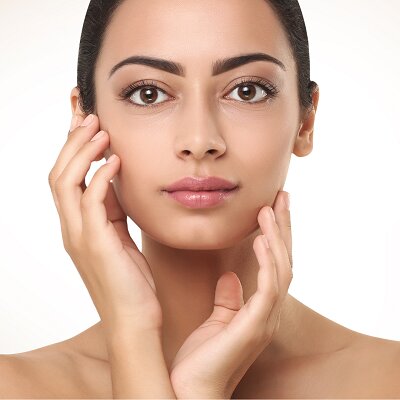Chemical peels are a popular choice for skin rejuvenation, offering numerous benefits like smoother texture, reduction in fine lines, and improved skin tone. However, it’s essential to know when to stop chemical peels to ensure you're not overdoing it or harming your skin. If you're considering a treatment at a Chemical Peels Clinic in Muscat, understanding the signs that indicate you’ve reached your limit is crucial. In this article, we’ll guide you on how to recognize when it’s time to pause your chemical peel treatments.
Understanding the Basics of Chemical Peels
Chemical peels are a skin treatment that involves applying a chemical solution to the skin to exfoliate and remove dead skin cells. This process stimulates the skin’s natural regeneration, leaving it smoother, clearer, and more radiant. The strength of the peel varies, and it’s typically customized to meet specific skin concerns like acne, hyperpigmentation, or aging signs.
Before deciding to stop chemical peels, it’s important to understand how the treatment works and what it does for your skin. It’s a great idea to consult with a professional at a Chemical Peels Clinic in Muscat to determine the right peel for your skin type.
Signs That You’ve Reached Your Limit
When it comes to chemical peels, moderation is key. Overdoing treatments can lead to skin damage, irritation, and even long-term issues. Here are some key signs that you should stop or pause your chemical peel treatments:
1. Persistent Skin Irritation or Redness
While some irritation and redness are common after a chemical peel, prolonged irritation is a sign that you may be over-exfoliating your skin. If your skin is consistently red, inflamed, or painful for days or weeks after a treatment, it’s a clear indication that you need to stop and let your skin heal.
2. Dryness and Flakiness
Excessive dryness and flakiness can be a natural part of the healing process after a chemical peel, but if it becomes too intense or doesn’t improve, it may indicate that your skin is being over-exfoliated. Giving your skin time to recover will help restore its natural moisture balance.
3. Development of Hyperpigmentation
Sometimes, over-exfoliating the skin with chemical peels can result in hyperpigmentation, which causes dark spots or uneven skin tone. This is more likely to happen if you don’t allow enough time between treatments or if you’re using a peel that is too strong for your skin type. If you notice the appearance of new dark spots or uneven pigmentation, it’s time to stop and consult with a skin expert.
4. Skin Sensitivity to Sunlight
After a chemical peel, your skin becomes more sensitive to sunlight, but if you find that even minimal sun exposure causes irritation or discomfort, it may be a sign that your skin has been overtreated. Prolonged sun sensitivity can increase the risk of sun damage and pigmentation issues.
Consulting a Professional for Guidance
If you're unsure whether you should stop your chemical peel treatments, it's always a good idea to consult with a professional at a Chemical peel clinic in Muscat. An experienced dermatologist or aesthetician can assess your skin and guide how often you should be scheduling treatments and whether it’s time to take a break. Personalized advice will ensure you avoid negative side effects while still achieving the desired results.
The Importance of Skin Recovery
After a chemical peel, your skin needs time to recover. This recovery period is essential to avoid over-exfoliation, which can lead to skin sensitivity or damage. Most people find that they need at least a few weeks between treatments for the skin to fully recover. This also allows time for the skin’s natural healing process, ensuring that the results are maximized without causing long-term harm.
If you’re considering further chemical peel treatments, remember that skin health is the priority. Pausing for recovery can prevent cumulative damage and allow your skin to adjust.
Adjusting Treatment Frequency for Your Skin’s Needs
Chemical peels should never be one-size-fits-all. The frequency and strength of your treatments should be adjusted based on your skin’s response and needs. While some individuals may benefit from monthly peels, others may only need a treatment every few months. It’s essential to listen to your skin and avoid the temptation to over-treat it in pursuit of faster results.
Assessing Your Skin’s Progress
Another way to determine if it’s time to stop chemical peels is to evaluate the progress your skin has made. If you’ve achieved the results you were aiming for—whether that’s clearer skin, fewer wrinkles, or improved texture—there’s no need to continue with regular treatments. Instead, you can focus on maintaining the results with appropriate skincare and periodic touch-ups.
Caring for Your Skin Between Treatments
When taking a break from chemical peels, ensure you're using the right skincare routine to maintain and protect your skin. Hydrating products, sun protection, and gentle exfoliation can help keep your skin healthy between treatments. Avoid harsh or abrasive products that could irritate your skin while it’s in recovery mode.
Moisturization and Sunscreen
During the recovery phase and between treatments, your skin will benefit from added moisture. Use a gentle moisturizer that hydrates without clogging pores. Sunscreen is also crucial during this time, as your skin is more sensitive and prone to damage from UV rays.
When to Seek Alternatives to Chemical Peels
If you’ve reached a point where chemical peels no longer seem to offer the results you’re looking for, or your skin is showing signs of damage, it may be time to explore alternative treatments. Options like microneedling, laser treatments, or facials may offer similar benefits without the same risk of irritation or over-exfoliation.
Discussing alternative treatments with a skincare expert at a Chemical Peels Clinic in Muscat can help you decide the next best step for your skincare journey.
Conclusion: Listen to Your Skin
Chemical peels can be a transformative treatment for your skin, but knowing when to stop or pause is just as important as knowing when to start. Paying attention to your skin’s needs, including signs of irritation, dryness, or hyperpigmentation, will help you avoid over-treating and protect your skin’s long-term health. Regular consultations with a professional at a Chemical Peels Clinic in Muscat will ensure that your treatments remain effective and safe, offering you the best results for your skin type and concerns.






Comments